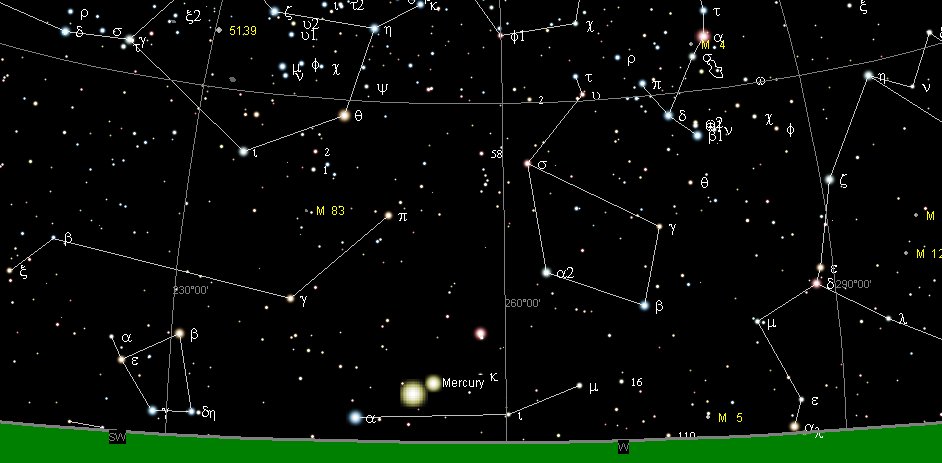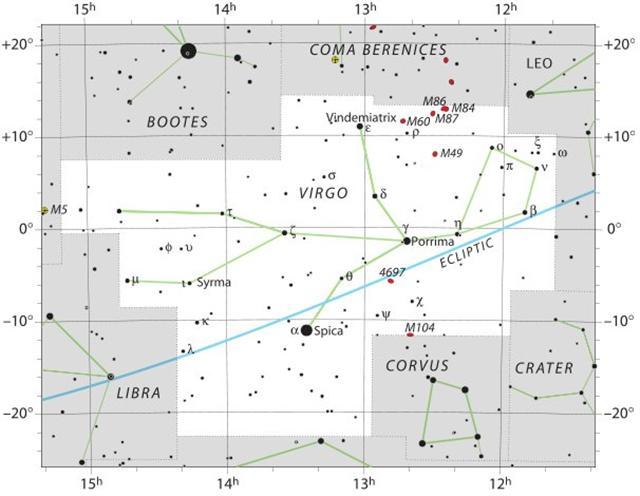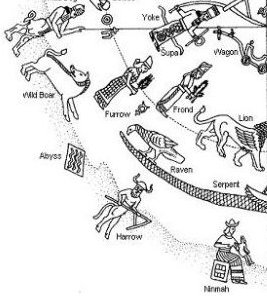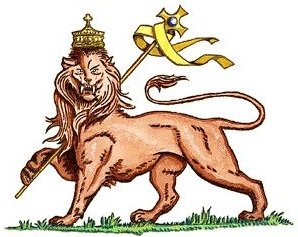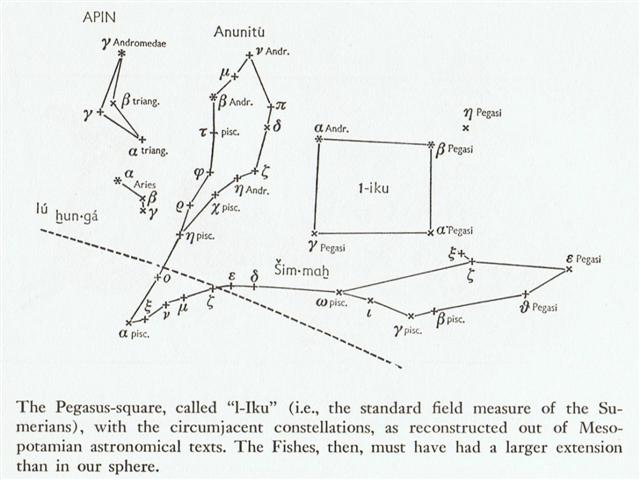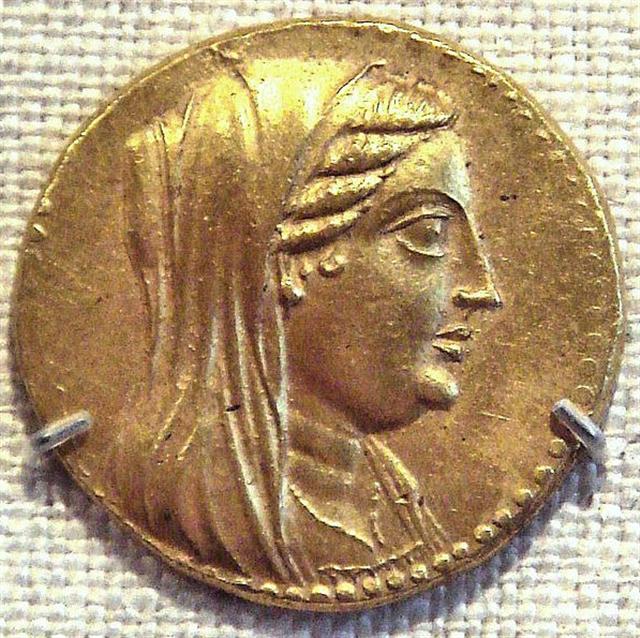23. I decided to move the assumed
observatory from Easter Island (27º S) down to 65º S in order to
get a better view of the night of October 23 AD 2023:
The planet Mercury is where it
ought to be, viz. as always close to the Sun (here indicated by
the greater yellow sphere).
And at this time of the year
Mercury will be possible to observe.
... Ganz ähnlich is der Name 'Gott
von Duazag' des Gottes Nabū ... zu erklären.
Er bezeichnet ihn als den Gott des
Wachtstums, welches als aus dem Osten stammend betrachtet wird,
weil die Sonne, die das Wachstum bringt, im Osten aufgeht.
Dass aber Nabū
als Ost-Gott aufgefasst wurde, hängt damit zusammen, dass sein
Stern, der Mercur, nur im Osten oder Westen sichtbar ist ...
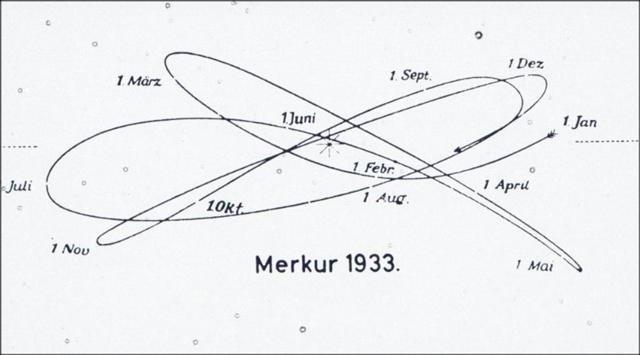
|
*27 |
JULY 10 (*111) |
*30 |
AUG 9 (*141 =
*205 - *64) |
 |
 |
|
Ga5-1 (111) |
Ga6-1 (141) |
|
Θ CRATERIS
(*175.0) |
HEZE
(*205.0) |
|
MANUS CATENATA (*358 = *175 +
*183) |
ACHERNAR
(*205 - *182 = *23) |
Heze is ζ Virginis,
located *80 right ascension days before the last day of
December.
|
Manacle |
ziqq |
Phoenician
zayin |
 |
Greek zeta |
Ζ (ζ) |
|
... Zeta
(uppercase Ζ,
lowercase ζ; Greek:
ζήτα
... is the sixth letter of the Greek alphabet.
In the system of Greek numerals, it has a value
of 7. It was derived from the Phoenician letter
Zayin. Letters that arose from zeta
include the Roman Z and Cyrillic З
...
Zayin
(also spelled Zain or Zayn or
simply Zay) is the seventh letter of many
Semitic abjads ... It represents the sound
[z]. The Phoenician
letter appears to be named after a sword or
other weapon. (In Biblical Hebrew, 'Zayin'
means sword, and the verb 'Lezayen' means
to arm. In modern Hebrew, 'zayin' means
penis and 'lezayen' is a vulgar term
which generally means to perform sexual
intercourse and is used in a similar fashion to
the English word fuck, although the older
meaning survives in 'maavak mezuyan'
(armed struggle) and 'beton mezuyan'
(armed, i.e., reinforced concrete). The
Proto-Sinaitic glyph according to Brian Colless
may have been called ziqq, based on a
hieroglyph depicting a 'manacle'.

 |
... Maui
at first assumed the form of a kiore, or rat, to
enter the body of Hine. But tataeko, the
little whitehead, said he would never succeed in that
form. So he took the form of a toke, or
earth-worm. But tiwaiwaka the fantail, who did
not like worms, was against this. So Maui turned
himself into a moko huruhuru, a kind of
caterpillar that glistens. It was agreed that this
looked best, and so Maui started forth, with
comical movements.
The little birds now did their
best to comply with Maui's wish. They sat as
still as they could, and held their beaks shut tight,
and tried not to laugh. But it was impossible. It was
the way Maui went in that gave them the giggles,
and in a moment little tiwaiwaka the fantail
could no longer contain himself. He laughed out loud,
with his merry, cheeky note, and danced about with
delight, his tail flickering and his beak snapping.
Hine nui awoke with a start. She realised what was
happening, and in a moment it was all over with Maui.
By the way of rebirth he met his end ...

To repeat:
|
 |
*30 |
 |
*7 |
 |
*18 |
 |
|
Ga1-21 |
Ga2-22
(52) |
Ga3-1
(60) |
Ga3-20
(79) |
|
June 14
(*85) |
July 15
(*116) |
July 23
(*124) |
Aug 11 (*143) |
|
APRIL 11 (*21) |
MAY 12
(*52) |
MAY 20
(*60) |
JUNE 8
(*79) |
|
YANG MUN
(SOUTH GATE OF THE WOLF)
"Nov 3
(*227) |
POLLUX
(β) + MARS
May
14 (*54) AD 2023
|
19 |
AL TARF
(β) + MARS
June 3 (*74) AD 2023 |
10 |
ALTERF
(λ) + MARS
June 14 (*85) AD 2023 |
|
32 |
|
"Dec 4 (*258) |
*7 |
"Dec 12
(*266) |
*18 |
*285
("Dec 31) |
79 - 21 = 2 * 29 = 64 - 6 = 58 = 30 + 32 - 4
The last
glyph on side a of the G tablet is
number 229, and 2 * 29 = 58 = 300 - 242
(number of glyphs on side b of the G
tablet).
... Ecclesiastically,
the equinox is reckoned to be on 21
March (even though the equinox occurs,
astronomically speaking, on 20 March in
most years) ...
|
|
JULY 15 |
16 |
17 (*118 → 4 * 29½) |
18 (199) |
 |
 |
 |
 |
|
Ga5-6 |
Ga5-7 |
Ga5-8 (118) |
Ga5-9 |
|
*180 |
π
Virginis (*181.0) |
*182 |
ALCHITA |
|
Sept 17 (260) |
18 |
19 |
20 (263) |
|
*363 |
*364 |
SIRRAH |
ALGENIB PEGASI |
|
March 19 |
20 |
0h |
22 |

263 (Raven) - 145 (May 25 → Crow) =
118 = 472 / 4 = 354 - 236.
|
 |
|
phase |
observed
periods |
periods
in the Mayan 'map' |
difference |
|
evening
star |
263 |
250 |
- 13 |
|
black |
8 |
8 |
0 |
|
morning
star |
263 |
236 = 8 * 29½ |
- 27 |
|
black |
50 |
90 |
+ 40 |
|
sum |
584 |
584 |
0 |
|
|
JULY 19 (200) |
20 (*121) |
 |
 |
|
Ga5-10 (120) |
Ga5-11 |
|
*2 |
σ
Andromedae (*3.0) |
|
Sept 21 (*184 = *120 + *64) |
Equinox (265 =
236 + 29)
ZANIAH |
|
Viri.
1. To wind, to coil, to
roll up; he viri i te hau, to
wind, coil a string (to fasten
something). 2. To fall from a
height, rolling over, to hurl down,
to fling down. Viriviri,
round, spherical (said of small
objects). Viviri te henua,
to feel dizzy (also: mimiro te
henua). Vanaga. To turn in a
circle, to clew up, to groom, to
twist, to dive from a height, to
roll (kaviri). Hakaviri,
crank, to groom, to turn a wheel, to
revolve, to screw, to beat down;
kahu hakaviri, shroud. Viriga,
rolling, danger. Viriviri,
ball, round, oval, bridge, roll,
summit, shroud, to twist, to wheel
round, to wallow. Hakaviriviri,
to roll, to round; rima
hakaviriviri, stroke of the
flat, fisticuff. P Pau.: viriviri,
to brail, to clew up; koviriviri,
twisting. Mgv.: viri, to
roll, to turn, to twist; viviri,
to fall to the ground again and
again in a fight. Mq.: vii,
to slide, to roll, to fall and roll.
Ta.: viri, to roll up, to
clew up. Viritopa, danger.
Mgv.: Viripogi, eyes heavy
with sleep. Mq.: viipoki,
swooning, vertigo. Churchill. Viti:
vili, to pick up fallen fruit
or leaves ... In Viti virimbai
has the meaning of putting up a
fence (mbai fence); viri
does not appear independently in
this use, but it is undoubtedly
homogenetic with Samoan vili,
which has a basic meaning of going
around; virikoro then
signifies the
ring-fence-that-goes-about, sc. the
moon. In the Maori, aokoro is
the cloud-fence ... Churchill 2. |
|
JULY 21 |
7-22 (*123) |
23 |
24 |
25 |
 |
 |
 |
 |
 |
|
Ga5-12 |
Ga5-13 (123) |
Ga5-14 |
Ga5-15 |
Ga5-16 |
|
*4 |
ANKAA (*5.0) |
*6 |
*7 |
SCHEDIR |
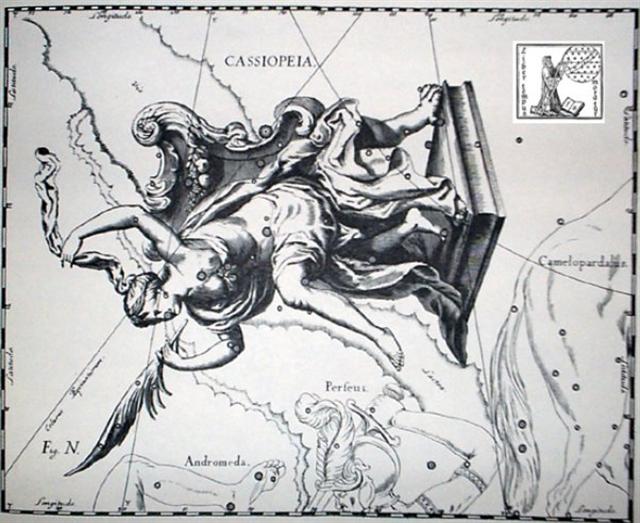 |
|
LONG SANDBANK |
ACRUX |
γ
Com. Berenicis (*188.0) |
γ
Muscae (*189.0) |
*190 |
|
Sept 23 (266) |
24 |
25 |
26 |
27 (270) |
 |

... It inaugurates the
most accurate solar calendar known to the
ancient world, with 365¼ days per year. It
declares the deceased princess Berenike
a goddess and creates a cult for her, with
women, men, ceremonies, and special
'bread-cakes'. Lastly it orders the decree
to be incised in stone or bronze in both
hieroglyphs and Greek, and to be publicly
displayed in the temples. The traditional
Egyptian calendar had 365 days: twelve
months of thirty days each and an additional
five epagomenal days. According to the
reform, the 5-day 'Opening of the Year'
ceremonies would include an additional 6th
day every fourth year. The reason given was
that the rise of Sothis advances to
another day in every 4 years, so that
attaching the beginning of the year to the
heliacal rising of the star Sirius would
keep the calendar synchronized with the
seasons. This Ptolemaic calendar reform
failed, but was finally officially
implemented in Egypt by Augustus in 26/25
BCE, now called the Alexandrian calendar,
with a sixth epagomenal day occurring for
the first time on 29 August 22 BCE. Julius
Caesar had earlier implemented a 365¼ day
year in Rome in 45 BCE as part of the Julian
calendar
...

|
JULY 26 |
27 |
28 |
29 (210) |
30 (*131 = *314 - *183) |
 |
 |
 |
 |
 |
|
Ga5-17 |
Ga5-18 (128) |
Ga5-19 |
Ga5-20 |
Ga5-21 |
|
ξ
Phoenicis (*9.0) |
*10 |
η
Andromedae (*11.4) |
CIH (*12.4) |
*13 |
|
PORRIMA |
*192 |
*193 |
ALIOTH |
JAN 29 (*314) |
|
Sept 28 (*191) |
29 |
30 (273 = 3 * 91) |
Oct 1 (*194) |
2
(211 + 64 = 275) |
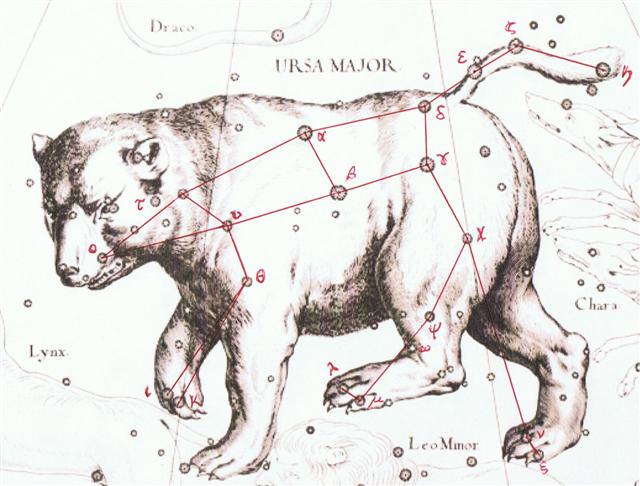 |
From the last day of September to
Benetnash (η Ursae
Majoris) there were 16 right ascension days.

|
